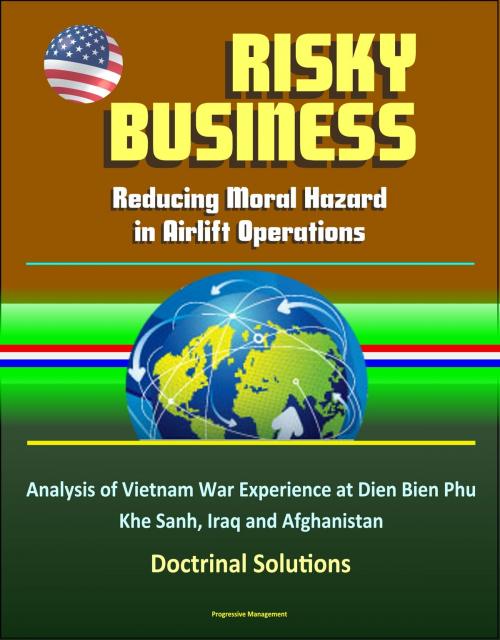Risky Business: Reducing Moral Hazard in Airlift Operations - Analysis of Vietnam War Experience at Dien Bien Phu, Khe Sanh, Iraq and Afghanistan, Doctrinal Solutions
Nonfiction, History, Military, Vietnam War, Asian, Aviation| Author: | Progressive Management | ISBN: | 9781370412389 |
| Publisher: | Progressive Management | Publication: | September 12, 2016 |
| Imprint: | Smashwords Edition | Language: | English |
| Author: | Progressive Management |
| ISBN: | 9781370412389 |
| Publisher: | Progressive Management |
| Publication: | September 12, 2016 |
| Imprint: | Smashwords Edition |
| Language: | English |
This excellent report, professionally converted for accurate flowing-text e-book format reproduction, examines the role of moral hazard in airlift operations. The author turns to the world of economics and insurance to define moral hazard and then examines two historical case studies through this lens. By conducting a comparative case study of the airlift-dependent operations at Dien Bien Phu and Khe Sanh and examining these in terms of moral hazard, the author establishes that moral hazard plays a role in airlift operations, that this role is not predictive in nature, that this role illuminates risks that may otherwise go unnoticed, and that there is a positive relationship between airlift capacity and moral hazard. The author then examines US airlift operations in Iraq and Afghanistan from 2001 to 2011 in light of the conclusions drawn from Dien Bien Phu and Khe Sanh. This comparison provides additional evidence for the case at hand and demonstrates the relevance to present-day events and concerns. The author postulates that a doctrinal solution best addresses moral hazard in airlift operations by informing the application of airlift in military operations while not arbitrarily curtailing or limiting those operations. The author concludes that such a doctrinal solution helps to inform military judgment and ensures risks associated with airlift-dependent operations are more fully accounted for than they would be otherwise.
This excellent report, professionally converted for accurate flowing-text e-book format reproduction, examines the role of moral hazard in airlift operations. The author turns to the world of economics and insurance to define moral hazard and then examines two historical case studies through this lens. By conducting a comparative case study of the airlift-dependent operations at Dien Bien Phu and Khe Sanh and examining these in terms of moral hazard, the author establishes that moral hazard plays a role in airlift operations, that this role is not predictive in nature, that this role illuminates risks that may otherwise go unnoticed, and that there is a positive relationship between airlift capacity and moral hazard. The author then examines US airlift operations in Iraq and Afghanistan from 2001 to 2011 in light of the conclusions drawn from Dien Bien Phu and Khe Sanh. This comparison provides additional evidence for the case at hand and demonstrates the relevance to present-day events and concerns. The author postulates that a doctrinal solution best addresses moral hazard in airlift operations by informing the application of airlift in military operations while not arbitrarily curtailing or limiting those operations. The author concludes that such a doctrinal solution helps to inform military judgment and ensures risks associated with airlift-dependent operations are more fully accounted for than they would be otherwise.















